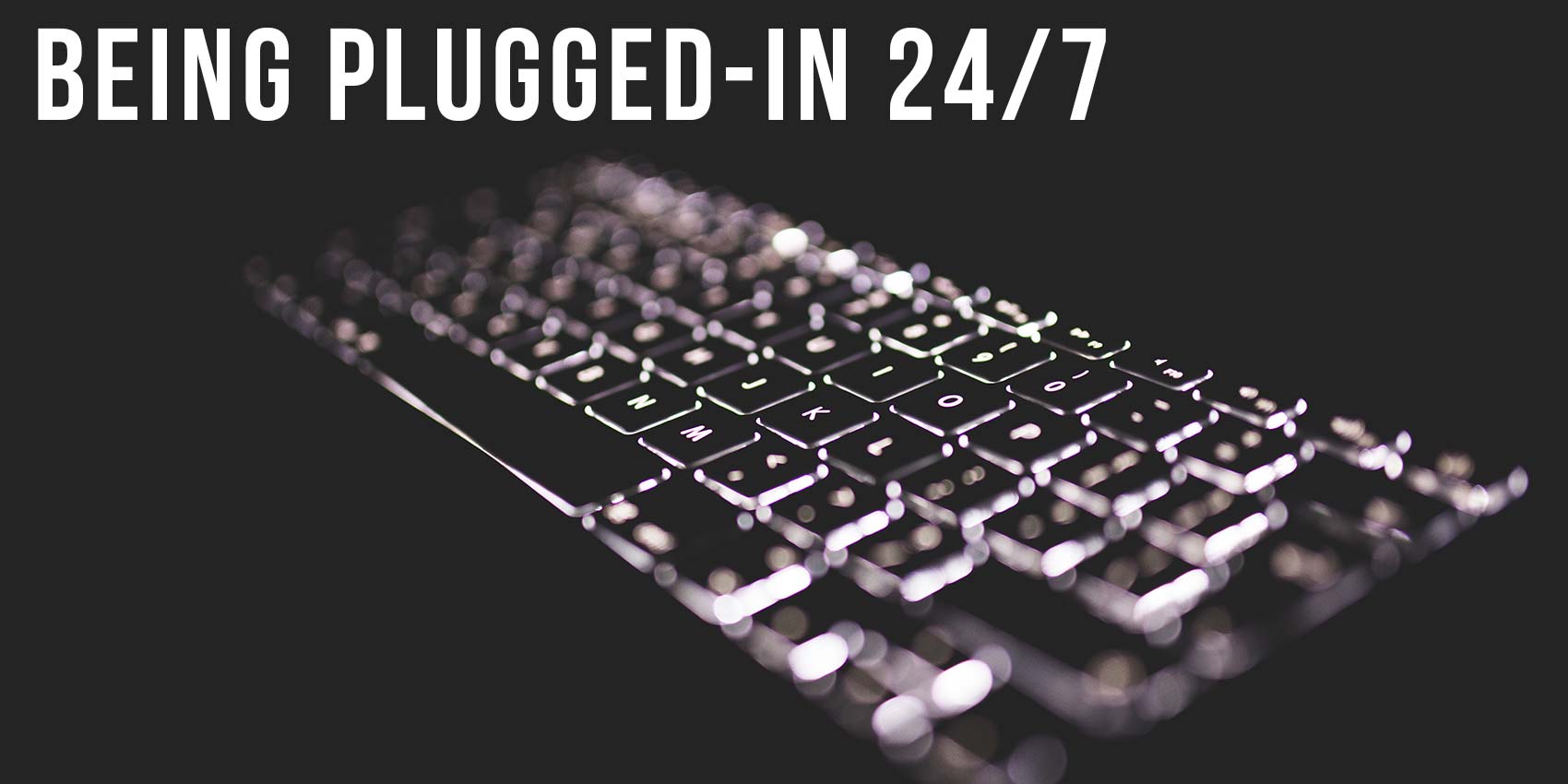22 Mar Being plugged-in 24/7

Social media allows us to stay connected with friends 24/7. That’s great if you are trapped in your home due to a snow storm, away on a family trip to granny’s, or just in need of a person who gets you. But unfortunately, it also has its downside (yup, back to the pros and cons of the first sub-post!). Your body and brain need time off to repair and restore. But many teens (and adults!) are not getting that break because they are always plugged-in.

DID YOU KNOW? Children ages 8-11 who have less than two hours a day of screen time perform better on cognitive tests than those who spend more time online or watching TV.
(Source: Monitor on Psychology, January 2019, pg. 17)
Teens today are chronically sleep deprived. Some of that comes from a school system that is demanding more and more work on top of school schedules that do not match with a teen’s natural sleep cycle. But, phone and computer use is also contributing to the problem. Wanting not to miss out on anything, many teens are sleeping with phones on and underneath their pillows. Phone texts and pings in the middle of the night then wake them up and keep them up at all hours. Indeed, research shows that students who turn their phones off before bed perform significantly better in school than students who continued to text 30 minutes after lights are turned off. Those that turn their phones off get more sleep and feel less sleepy during the day (Source: Monitor on Psychology, April 2016, pg. 21).

DID YOU KNOW? One study found that on average students are distracted every 6 minutes while doing schoolwork.
(Source: Scientific American Mind, march/April 2016. pg. 9)
Moreover, during the day, being constantly plugged-in can increase stress levels. Many teens report that they feel stressed if not checking their phones but in fact, research shows that “constant checkers” report higher stress levels than those who aren’t glued to their devices (Source: American Psychological Association as reported in the Week, March 10, 2017). Higher cell phone use is also associated with higher anxiety levels.
This lack of sleep and the lack of unplugged time, can lead to chronic stress symptoms and, according to neuropsychologist William Stixrud, we should be looking at the effects of chronic stress as equivalent to the effects of repeated mild blows to the heads of athletes. We may not see the immediate effects now but they will be big and significant over time. Stixrud notes that constant connection to social media, video games and homework on computers leads to a mind that is racing, scattered and eventually overwhelmed (Source: Monitor on Psychology, September 2018, pg. 25).
Moreover, being connected 24/7 is leading to the inability to be in solitude. Why is that important? Time spent in solitude is actually time spent getting to know ourselves and therefore, if we don’t have the ability to be alone, we will never truly know ourselves. One study actually found that young people would rather shock themselves with a shock that was described as mildly painful than sit alone in a room for fifteen minutes. (Source: Scientific American Mind, May 2015). Being constantly connected may be causing some users to be uncomfortable with being alone.
In fact, the most consistent finding in the research on social media is in alignment with this study: screen time in and of itself has yet to be proven to be a direct cause of any particular illness BUT what it does do for certain is take time away from other activities. That means, the more screen time you engage in, the LESS time you have interacting with other people, playing sports, exercising, learning your guitar, climbing trees, being alone, etc. The less time with those activities means LESS skill development in them and that’s what is mostly worrying to people. Research confirms this link and concern: a study by the American Academy of Pediatrics found that the more screen time children had at ages 2 and 3, the worse they did on developmental tests at 3 and 5.
(Source: JAMA: https://jamanetwork.com/journals/jamapediatrics/article-abstract/2722666?guestAccessKey=879c6c87-141e-48f8-8c95-4d684600a644)
As such, most experts encourage balance. Just like no one should exercise, sleep or eat 24/7, no one should really be engaged with social media 24/7. Having “unplugged” time is important, although in today’s world, that can be hard. To find out just why that is, read on….




Post Question:
Do you feel balanced in your life with social media? How do you know if you have a healthy balance?
Answer the post question here
What's being said